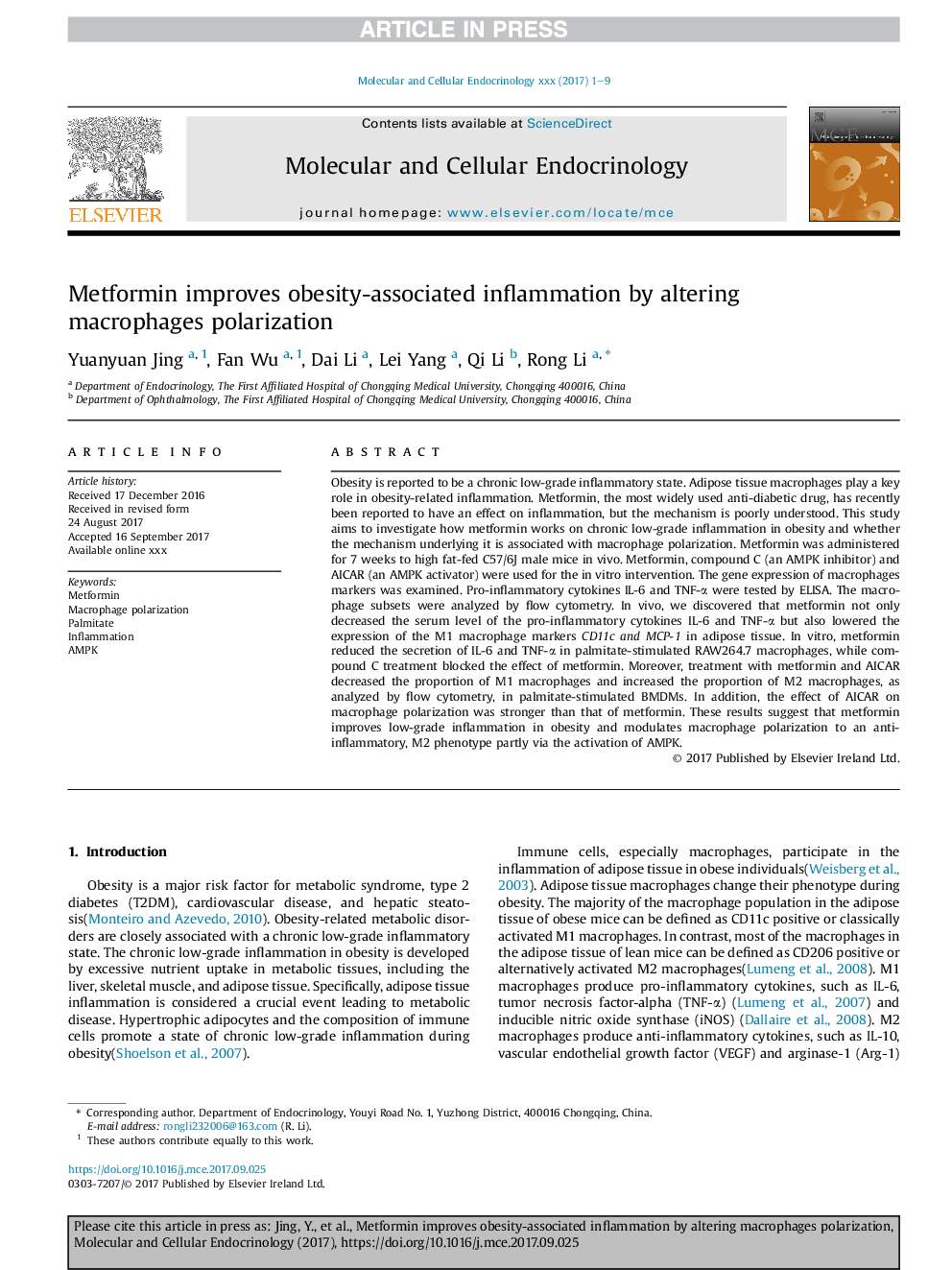| Article ID | Journal | Published Year | Pages | File Type |
|---|---|---|---|---|
| 8476593 | Molecular and Cellular Endocrinology | 2018 | 9 Pages |
Abstract
Obesity is reported to be a chronic low-grade inflammatory state. Adipose tissue macrophages play a key role in obesity-related inflammation. Metformin, the most widely used anti-diabetic drug, has recently been reported to have an effect on inflammation, but the mechanism is poorly understood. This study aims to investigate how metformin works on chronic low-grade inflammation in obesity and whether the mechanism underlying it is associated with macrophage polarization. Metformin was administered for 7 weeks to high fat-fed C57/6J male mice in vivo. Metformin, compound C (an AMPK inhibitor) and AICAR (an AMPK activator) were used for the in vitro intervention. The gene expression of macrophages markers was examined. Pro-inflammatory cytokines IL-6 and TNF-α were tested by ELISA. The macrophage subsets were analyzed by flow cytometry. In vivo, we discovered that metformin not only decreased the serum level of the pro-inflammatory cytokines IL-6 and TNF-α but also lowered the expression of the M1 macrophage markers CD11c and MCP-1 in adipose tissue. In vitro, metformin reduced the secretion of IL-6 and TNF-α in palmitate-stimulated RAW264.7 macrophages, while compound C treatment blocked the effect of metformin. Moreover, treatment with metformin and AICAR decreased the proportion of M1 macrophages and increased the proportion of M2 macrophages, as analyzed by flow cytometry, in palmitate-stimulated BMDMs. In addition, the effect of AICAR on macrophage polarization was stronger than that of metformin. These results suggest that metformin improves low-grade inflammation in obesity and modulates macrophage polarization to an anti-inflammatory, M2 phenotype partly via the activation of AMPK.
Related Topics
Life Sciences
Biochemistry, Genetics and Molecular Biology
Cell Biology
Authors
Yuanyuan Jing, Fan Wu, Dai Li, Lei Yang, Qi Li, Rong Li,
